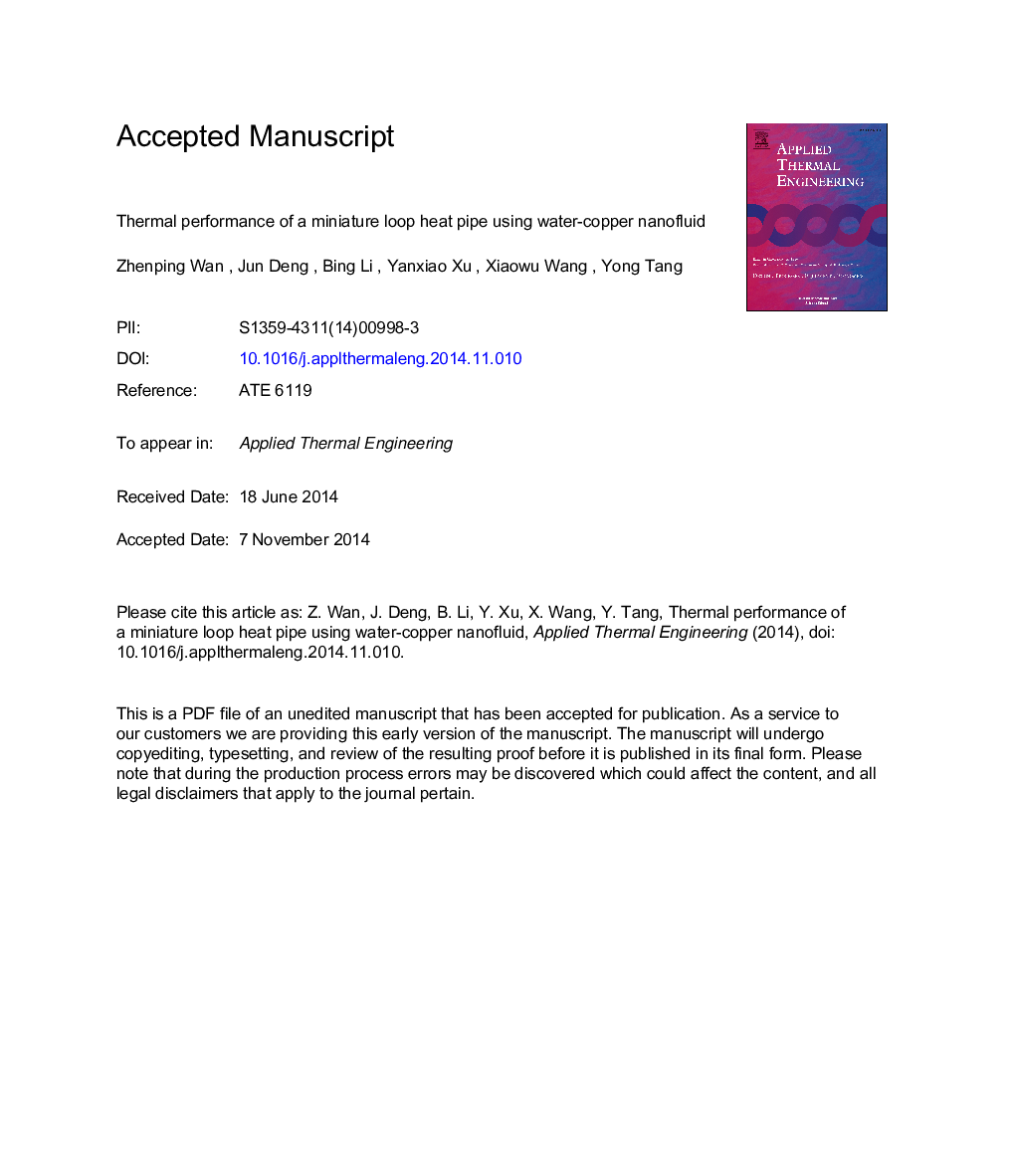| Article ID | Journal | Published Year | Pages | File Type |
|---|---|---|---|---|
| 7049019 | Applied Thermal Engineering | 2015 | 21 Pages |
Abstract
The implementation of high power density coupled with limited space available in the cooling of electronics demands a highly efficient miniature loop heat pipe (mLHP). This study experimentally investigates the influence of a nanofluid on the thermal characteristics of a specially designed mLHP and explores the mechanism of heat transfer enhancement of the nanofluid in the mLHP. The nanofluid is composed of deionized water and Cu nanoparticles and has an average diameter of 50Â nm. Reductions of 12.8% and 21.7% are achieved in the evaporator wall temperature and total thermal resistance, respectively, while the heat transfer coefficient (HTC) of the evaporator increases 19.5% when substituting the nanofluid with 1.0Â wt% of deionized water at a heat load of 100Â W. There is an optimal mass concentration for the nanofluids, which corresponds to the maximum heat transfer enhancement. The optimal mass concentration is 1.5Â wt%. The thermal performance improvement of the mLHP using the nanofluid results from the reduction of the contact angle, the enhancement of boiling heat transfer, and a deposited nanoparticle coat on the boiling surface.
Related Topics
Physical Sciences and Engineering
Chemical Engineering
Fluid Flow and Transfer Processes
Authors
Zhenping Wan, Jun Deng, Bin Li, Yanxiao Xu, Xiaowu Wang, Yong Tang,
